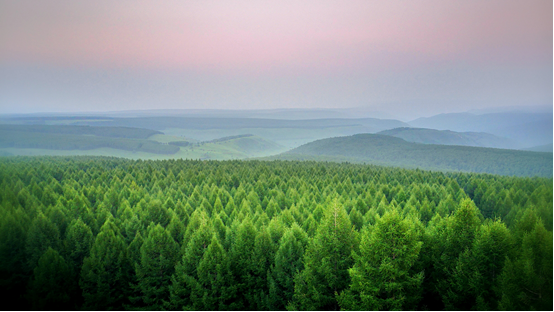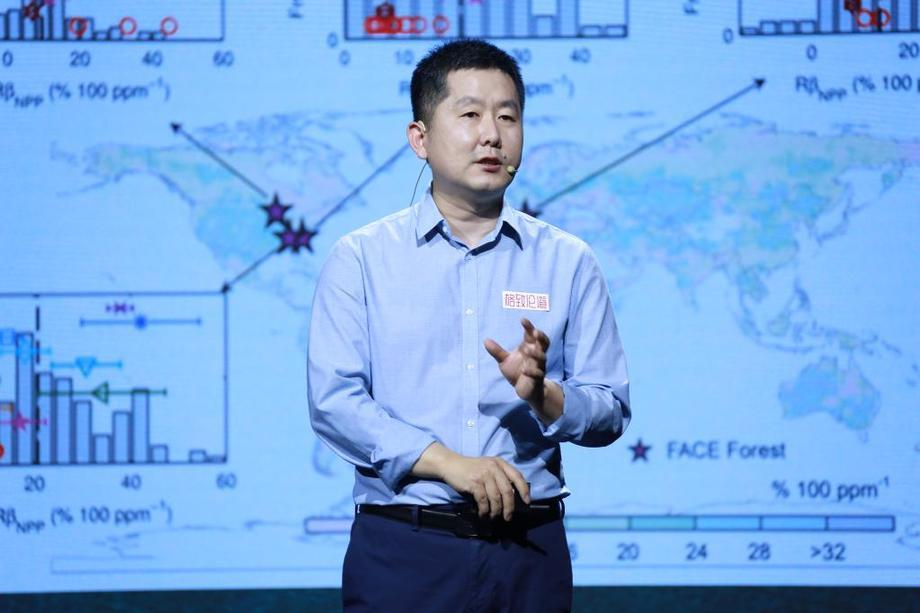Peking University, October 6, 2022: Melting glaciers, unrelenting floods, scorching heatwaves… As the world is confronting a perfect storm of climate crises, scientists are groping for ways to address the root cause—carbon emissions.
Piao Shilong, an academician of the Chinese Academy of Sciences (CAS) and a professor at the College of Urban and Environmental Sciences, Peking University, has focused his research on the carbon cycling and carbon budget in China. In a recent public lecture organized by the CAS, Prof. Piao elaborated on the research fruits he had made in the area and highlighted the promising prospect of China’s terrestrial ecosystems in removing carbon dioxide.
Carbon dioxide, the prime culprit of global warming, can hang around in the atmosphere for a very long time, highlighted Prof. Piao. While explaining China’s contribution to global warming, Prof. Piao referred to an essay he published in the Proceedings of the National Academy of Sciences last year. “China’s contribution to global warming stands at just 9%; while for the US, it’s about 22%, and for Europe, approximately 14%,” he said, adding that, despite China’s limited contribution, “as a responsible country, China still proposed its goal of carbon neutrality.”
Piao Shilong at the public lecture (Photo/Xinhua)
Prof. Piao pointed out that transitioning from carbon peak to carbon neutrality represents an enormous challenge for China, because the world’s second-largest economy has only 30 years to do so, as compared to 43 years for the US and 71 years for the EU.
Despite that, Prof. Piao noted, in marching towards its goal, China has made tremendous progress, especially in terms of improving its ecosystems. “China's forest coverage rate has risen from 12 percent in the early 1980s to 23 percent currently, with its forest stock volume topping 17.5 billion cubic meters,” the professor said, “Plus, China has built the world’s largest planted forests, increasing the planet’s total tree canopy by some 25 percent.”
“Therefore, China's tree-planting efforts are conducive to the terrestrial carbon sequestration and beneficial for the carbon sink of the ecosystems,” Prof. Piao highlighted.
Prof. Piao was also convinced that, notwithstanding uncertainties surrounding the land carbon sink in China, such as the changing climate, land use, and the shifting composition of air, China’s vegetation has shown a bright outlook. “In an article published in Nature Sustainability, which I co-authored, I pointed out that China is leading the increase in greening on land,” he said.
Due to the large proportion of newly planted forests, the forest age in China is relatively young. “Those forests, once grown, will have considerable carbon sink potentials. We estimate that 30 years later, they can expand the carbon sequestration by 9 to 10 billion tons,” the professor added.
Written by: Meng Bin
Edited by: Zhang Jiang
Cover Photo: Unsplash.com

